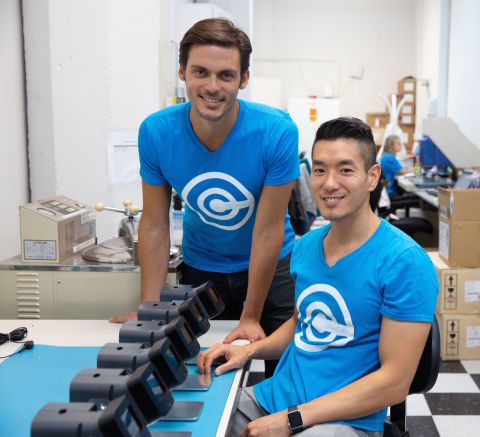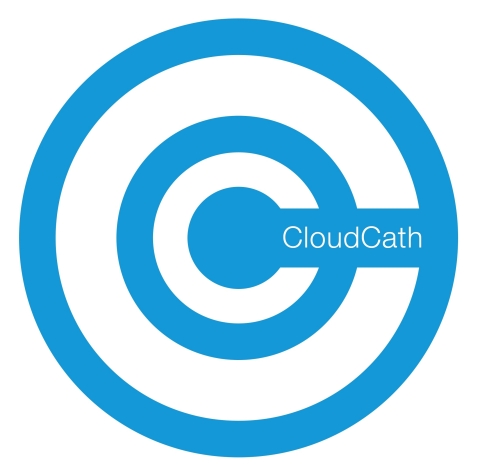CloudCath Announces $12 Million Series A Financing for Technology Enabling Remote, Real-Time Complication Monitoring for At-Home Dialysis
CloudCath Announces $12 Million Series A Financing for Technology Enabling Remote, Real-Time Complication Monitoring for At-Home Dialysis
Funds Will Be Used to Advance Commercialization of the Platform and for Development of Additional Applications
SAN FRANCISCO--(BUSINESS WIRE)--CloudCath, a company dedicated to remote complication monitoring for patients undergoing catheter-based treatments, today announced that it has completed a $12 million Series A financing led by Capital Integral with participation from FundRx, The Capital Partnership, Coconut Tree Investments, Stanford University’s StartX Fund, and additional strategic and individual investors. Proceeds from the round will be used to commercialize CloudCath’s first product, a system that enables remote, real-time monitoring for patients undergoing at-home peritoneal dialysis, allowing earlier complication intervention. Funding will also support the development of additional applications utilizing the company’s proprietary technology.
A July 2019 White House executive order on kidney care (the Advancing American Kidney Health Initiative) proposed that 80% of new patients with end-stage renal disease (ESRD) be treated with either kidney transplantation or home dialysis by 2025, a significant increase from current rates, which are below 20%.
“End-stage renal disease, one of the costliest chronic diseases in the U.S., is devastating to patients. The CloudCath technology enables patients and caregivers to easily monitor fluid parameters for early signs of complications, including infection, in real time, allowing dialysis providers to intervene much earlier than the existing standard of care,” said CloudCath co-founder and CEO Aly ElBadry. “This funding will speed commercialization of the CloudCath system, pending FDA clearance, and will also support our goal of offering remote monitoring for infectious disease management in multiple additional applications. We are looking forward to enabling better patient care and to playing an integral part of the big data revolution in infectious disease healthcare management.”
Nearly 750,000 U.S. patients are affected by ESRD, with the number of diagnosed patients increasing at a rate of 5% to 7% annually. Treatment for ESRD accounts for nearly 7% of Medicare’s budget, despite affecting fewer than 1% of Medicare beneficiaries. For patients undergoing peritoneal dialysis (PD), rates of infection-driven hospitalization are as high as 0.5 hospitalizations per patient year, according to the U.S. Renal Data System.
“Studies have shown that home-based kidney care generally improves outcomes, improves the patient experience and provides a much better value to dialysis care providers. But many patients lack the confidence to perform dialysis at home, in part due to the lack of monitoring and the disconnect between the home environment and the care teams. Moreover, they fear an infection that may lead to pain and require hospitalization,” said Dr. Glenn Chertow, Chief of the Division of Nephrology at Stanford University School of Medicine, who serves as Chairman of CloudCath’s Clinical Advisory Board. “With the CloudCath device, we expect to see wider adoption of peritoneal dialysis by patients and nephrologists, and longer, safer, reliance on home dialysis therapy where kidney transplantation is not feasible.”
Current standards of care rely on visual detection to identify infection origination, known as the "newspaper test." If patients cannot read a newspaper or written text print through a collection bag of spent peritoneal dialysate, they are advised to seek medical attention – a strategy that results in late identification of infection and possible complications that can lead to hospitalization and potentially a catheter removal procedure, limiting the patients’ treatment modality to the less convenient and more expensive Hemodialysis option.
CloudCath’s device seamlessly integrates into the patient’s drain line, monitoring the spent dialysate fluid on every dialysis cycle by measuring and quantifying the fluid properties remotely from the patients’ home. The data is transmitted to the CloudCath cloud-based infrastructure in real time, where proprietary data algorithms notify healthcare providers when there is a potential complication escalation. Through CloudCath’s monitoring platform, healthcare providers log in and access an unprecedented level of real-time data from their patients throughout their treatment, aiding in treatment decision management.
CloudCath’s Clinical Advisory Board projects that the technology could drive a 75% reduction in infection-driven hospitalizations – potentially saving thousands of lives, based on existing mortality rates, and reducing the U.S. healthcare system’s annual spend by as much as $2.6 billion.
About CloudCath
Founded in 2017, CloudCath is a digital health medical device company that is dedicated to remote complication monitoring for patients undergoing catheter-based treatments. Its remote monitoring platform analyzes drainage fluid, utilizing proprietary data analysis algorithms to detect fluid property deviations, and automatically transmits notifications to healthcare providers, enabling earlier intervention in cases of catheter-associated complications like infection. CloudCath’s first product is designed for patients undergoing peritoneal dialysis.
CloudCath is a proud member of the StartX Med Summer 2018 Cohort, a showcase company in the MedTech Innovator Summer 2019 cohort & recipient of UCSF’s Rosenman Innovator award in 2018.
The company is headquartered in San Francisco and backed by leading investors in both healthcare and technology.
Contacts
Media Contact:
Brad Perriello
Health+Commerce
617.817.1385
brad@healthandcommerce.com
Investor Contact:
Aly ElBadry
CloudCath
aly@cloudcath.com

